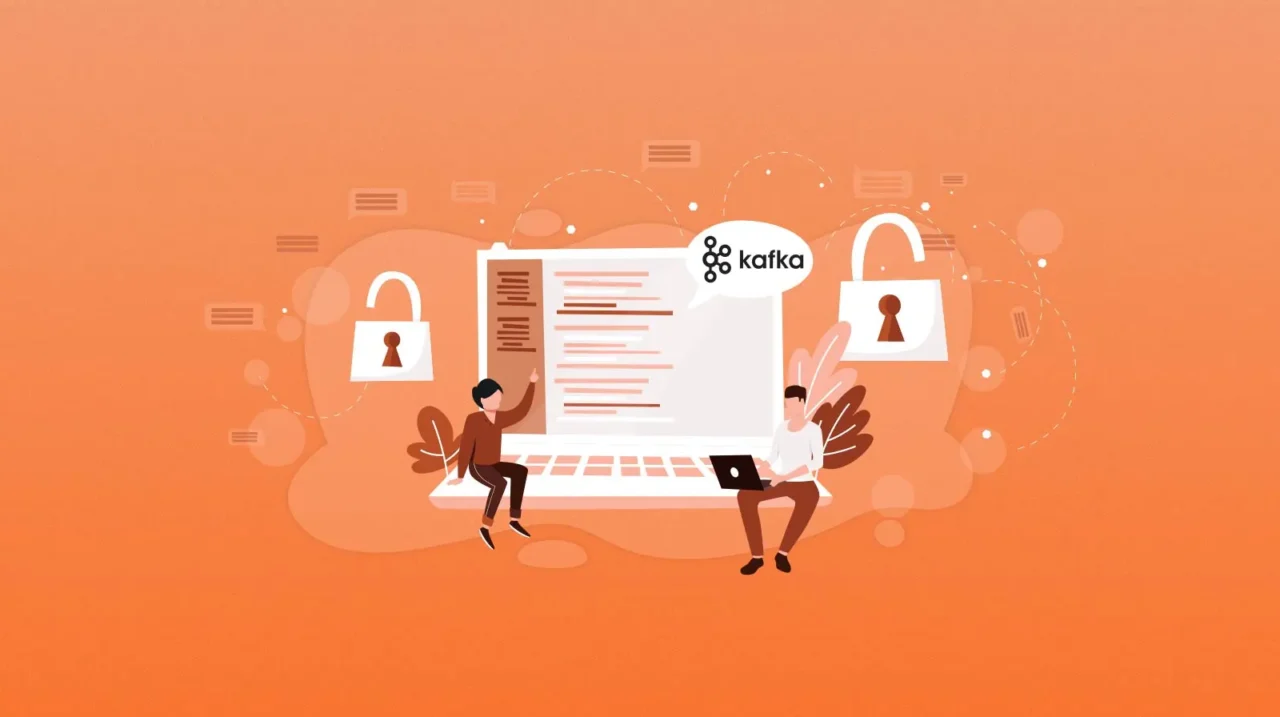50+ Kafka Interview Questions and Answers (Ultimate Guide 2025) – Expert Prep


Don’t just read interview questions—practice them! Head to Huru.ai to simulate unlimited interviews, get real-time AI feedback, and build unshakeable confidence. Start for FREE today!
Why Mastering Kafka Interview Questions Matters in 2025
Apache Kafka isn’t just a buzzword—it’s the backbone of modern data pipelines at top tech companies. With real-time data streaming and event-driven architectures dominating the industry, Kafka expertise is in high demand. Whether you’re a data engineer, backend developer, or aspiring architect, mastering Kafka interview questions will unlock career-defining opportunities.
In this ultimate guide, you’ll find 50+ expertly curated Kafka interview questions and answers spanning fundamentals, advanced concepts, and real-world scenarios—all tailored for 2025’s evolving interview landscape.

How to Ace Kafka Interviews: Strategies That Win Offers
- Go Beyond Memorization: Understand Kafka’s internals—focus on architecture, data flow, and use-cases.
- Practice Real-World Scenarios: Prepare for system design and troubleshooting questions, not just definitions.
- Leverage AI-Driven Mock Interviews: Platforms like Huru.ai let you practice unlimited questions, get instant feedback, and simulate live pressure situations.
- Stay Updated: Kafka evolves fast—be ready for questions on KRaft mode, removal of ZooKeeper, and new APIs.
- Communicate Clearly: Use diagrams, real-case examples, and structured answers to show mastery—not just theory.
💡 Key Takeaway
Most candidates fail Kafka interviews on scenario-based questions and troubleshooting. Practicing with realistic, adaptive feedback—like what you get on Huru.ai—is the #1 way to stand out.
Table of Contents
- Kafka Fundamentals Interview Questions
- Advanced Kafka Interview Questions
- Scenario-Based & Real-World Kafka Interview Questions
- Hands-On: Coding & Configuration Challenges
- Kafka and the Big Data Ecosystem
- Behavioral & Role-Specific Questions
- Best Kafka Interview Prep Resources (2025)
- Kafka Interview FAQs
Kafka Fundamentals Interview Questions
Let’s start with the foundation. Expect these questions in every interview—whether you’re a fresher or a seasoned engineer.
- What is Apache Kafka and why is it used?
Kafka is a distributed event streaming platform for building real-time data pipelines and streaming apps. It’s scalable, durable, high-throughput, and fault-tolerant—making it ideal for event-driven architectures, log aggregation, and real-time analytics. - Explain key components: broker, producer, consumer, topic, partition, offset.
– Broker: Kafka server that stores data and serves clients.
– Producer: Sends records to Kafka topics.
– Consumer: Reads records from topics.
– Topic: Named stream of records.
– Partition: Parallelism unit within a topic.
– Offset: Sequential ID to track consumption. - How does Kafka ensure reliability and fault tolerance?
Through replication (multiple brokers hold copies of data), acknowledgments, and leader election among partitions. - What is a Kafka cluster? What is KRaft mode?
A cluster is a group of Kafka brokers working together. KRaft mode (Kafka Raft) replaces ZooKeeper, providing native consensus and simplifying management (introduced in Kafka 2.8+). - Difference: Kafka vs RabbitMQ vs Pulsar?
Kafka is optimized for high-throughput publish-subscribe and event streaming. RabbitMQ is good for complex routing and request-reply messaging. Pulsar supports multi-tenancy and geo-replication. - How does Kafka handle message ordering?
Within a partition, Kafka guarantees message order. Across partitions, there’s no order guarantee. - What’s a consumer group?
A group of consumers sharing the load of reading from topic partitions. - What is exactly-once semantics in Kafka?
Kafka ensures that records are neither lost nor processed more than once (especially in producer-consumer or producer-Kafka delivery chains) via idempotent producers and transactional APIs. - Explain Kafka’s partitioning strategy. Why is it important?
Partitioning enables parallelism and scalability. Partitions are assigned based on keys, round-robin, or custom logic. - How does Kafka achieve durability?
Data is persisted to disk, replicated across brokers, and acknowledged only after safe storage.
Advanced Kafka Interview Questions
- Describe Kafka’s replication mechanism and ISR.
Each partition has a leader and followers. Leaders handle all reads/writes. ISR (In-Sync Replicas) are replicas caught up with the leader. Data is replicated for fault tolerance. - How does Kafka achieve high throughput?
Efficient I/O (zero-copy), data batching, compression, and asynchronous processing allow Kafka to handle millions of messages per second. - What is log compaction?
A cleanup policy where Kafka retains only the latest record for a key, making it great for changelog topics and state recovery. - Difference: At-most-once, at-least-once, and exactly-once delivery?
– At-most-once: Messages may be lost but never redelivered.
– At-least-once: No messages lost, but duplicates possible.
– Exactly-once: No loss, no duplicates (hardest to achieve; supported since Kafka 0.11+). - Explain Kafka’s retention policies.
Topics can be configured to keep data for a set period or until a size limit is reached. - How does Kafka handle backpressure?
Consumers can lag; Kafka provides metrics for lag monitoring. Producers can throttle or buffer messages as needed. - What’s the role of Kafka Connect?
Kafka Connect is a framework for integrating Kafka with external systems—databases, cloud storage, etc.—via source and sink connectors. - How are transactions managed in Kafka?
Transactions allow atomic writes across partitions and topics, ensuring exactly-once semantics for complex workflows. - What’s Kafka Streams API?
A Java library for building distributed stream processing apps using Kafka topics as input/output. - Explain rebalancing in consumer groups.
When consumers join/leave a group, partitions are reassigned. This is called rebalancing—crucial for scalability but can cause temporary unavailability.
Scenario-Based & Real-World Kafka Interview Questions
These questions separate great candidates from the rest. Be ready to whiteboard architectures, troubleshoot lag, and discuss trade-offs in real systems.
- How would you design a multi-tenant Kafka architecture for a SaaS application?
- Describe your approach to identifying and resolving high consumer lag issues.
- How would you guarantee exactly-once processing across multiple topics?
- Explain your steps when troubleshooting message loss in a production Kafka cluster.
- Design a solution using Kafka to integrate real-time analytics into a data lake.
- How to handle schema evolution in Kafka topics?
- If a broker goes down, how does it impact partition leadership and data availability?
- How would you tune Kafka for high throughput and low latency?
- Discuss a real-world failure you’ve handled in Kafka and how you resolved it.
- How would you monitor Kafka clusters in a cloud environment?
👉 Check out our Big Data Engineer Interview Questions for more scenario-based prep.
Hands-On: Coding & Configuration Challenges
Interviewers often want to see you write or explain code on the spot. Don’t just memorize—the best answers reference both config files and programmatic logic!
- Write a sample Kafka producer in Java to publish a message to a topic.
- Show how to configure log retention for a topic in server.properties.
- Demonstrate how to monitor consumer lag with Kafka metrics or external tools.
- Code example: How would you implement exactly-once semantics in a Kafka Streams application?
- Show YAML/JSON for configuring a Kafka Connect connector for a MySQL source.
Want to practice these live? Huru.ai lets you run unlimited mock interviews and get instant AI feedback on your technical answers!
Kafka and the Big Data Ecosystem
Kafka rarely operates alone. Be prepared for questions on integration with Spark, Hadoop, Flink, and cloud platforms.
- How does Kafka integrate with Apache Spark and Flink?
Both can consume from Kafka topics for real-time processing and analytics. - Explain the use of Kafka in ETL pipelines.
Kafka is often the backbone for ingesting and moving data efficiently between systems as part of ETL/ELT workflows. - How does Kafka fit into cloud-based architectures (AWS/GCP/Azure)?
Managed Kafka (MSK, Confluent Cloud) allows seamless integration with data lakes, warehouses, and analytics stacks on cloud platforms. - Discuss using Kafka for data lake ingestion and real-time dashboards.
- What are common challenges in scaling Kafka for big data workloads?
For more on the intersection of data science and big data interviews, read our Data Science Interview Prep guide.
Behavioral & Role-Specific Questions
- Describe a challenging Kafka project you’ve worked on. What was your role?
- How do you stay updated with new Kafka releases and ecosystem changes?
- Give an example of a time you solved a major data loss issue in production.
- How do you prioritize tasks during a Kafka-related production incident?
- What tools do you use for documenting and sharing Kafka architectures internally?
For tips on communicating analytics and technical skills in interviews, see Data Driven Decisions: Sharing Analytical Skills in Interviews.
Best Kafka Interview Prep Resources (2025)
- Geeks for Geeks: Kafka Interview Questions
- DataCamp: Kafka Interview Questions
- Simplilearn: Kafka Questions & Answers
- Vervoe: Kafka Interview Questions
- InterviewBit: 2025 Kafka Questions
- KnowledgeHut: Kafka Interview Q&A
Supplement your reading with hands-on practice. Simulate real interviews with Huru.ai and get personalized feedback on your answers!
Kafka Interview FAQs
A: Master the fundamentals, stay updated on recent changes (KRaft, new APIs), practice scenario-based questions, and use platforms like Huru.ai for unlimited mock interviews.
Q: Is coding required for Kafka interviews?
A: Yes! Expect to write code for producers/consumers, show configuration files, and explain your logic.
Q: How do I explain Kafka architecture in interviews?
A: Use diagrams, talk through producers, consumers, brokers, partitions, and offsets. Reference high availability, replication, and exactly-once semantics.
Q: Where can I get real feedback on my Kafka interview answers?
A: Huru.ai offers instant AI-driven feedback on your responses—practice unlimited, anytime!
Q: What are some commonly overlooked topics?
A: Monitoring, scaling, troubleshooting, and new features (like KRaft mode and schema registry) are often underemphasized.
About the Author
Elias Oconnor is a content writer at Huru.ai, passionate about helping professionals shine in tech interviews. With a background in data engineering and years of coaching candidates, Elias specializes in demystifying big data concepts and crafting actionable career resources.


 Oct 29,2022
Oct 29,2022  By Elias Oconnor
By Elias Oconnor